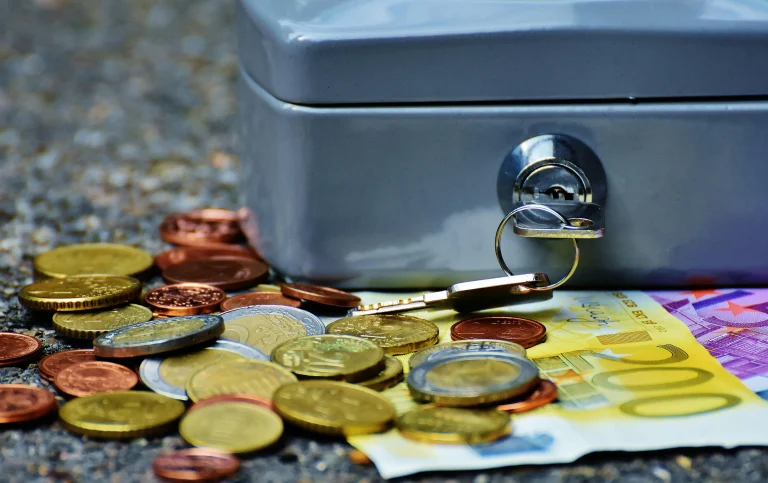How to Stop Living Paycheck to Paycheck
How to Stop Living Paycheck to Paycheck: Living with no extra money to spend after paying bills is one of the most difficult financial situations to go through. “Paycheck to paycheck,” as we now call it, is the cycle of wages being earned but no money left over after bills to save for emergency funds or planning for the future. This lifestyle is both financially and emotionally draining. With the right mindset, actionable steps, and planning, we are able to start saving for economically safe and free future.
What is known as the ‘Paycheck to Paycheck Trap’
Before we start saving instead of spending, we need to understand the reasons behind it. The ‘Paycheck to Paycheck’ cycle is not just the lack of money coming in, but also the lack of saving, bad spending habits, and the inability to manage debt efficiently.
Here are the most common reasons people lose the battle against ‘Paycheck to Paycheck’ life:
- Spending more than income earned
- Using credit cards for necessary daily purchases
- Not budgeting properly
- Lack of saving and emergency funds
- The absence of financial planning
The lack of a financial plan is to most people what the right mindset is to most successful people. Having no plan makes the goal of financial stability almost impossible to achieve.
Figure Out Where You Are Financially
To improve your finances, you first need to figure out exactly where all your money went. Look through your bank statements, bills, and receipts over the past 3 months. Create a clear picture of the following:
- Your income each month (take home)
- Your needs (rent, bills, food, travel)
- Your wants (subscriptions, restaurants, fun stuff)
- Your debt by monthly payments (credit card, loans, etc.)
Doing this personal assessment helps you develop a workable financial plan, one that you can actually stick to.

Develop a Focused Budget That Can Be Followed
A budget is not about deprivation; it is about having control. To break the paycheck to paycheck cycle, you need to assign purpose to every dollar you earn.
A simple and very powerful budgeting method is the 50-30-20 rule:
- 50% for needs (housing, utilities, food)
- 30% for wants (fun, shopping, eating out)
- 20% for savings and paying down debt
If your expenses are more than 50% for needs, you need to find ways to either cut expenses, increase income, or both. Use Mint, YNAB, or EveryDollar to help you track and manage your finances.
Create an Emergency Fund Right Now
One unplanned expense can throw your budget out of orbit if you are living paycheck to paycheck. That is why having an emergency fund is so important.
You can easily begin by saving $20 or $50 a week and, with time, aim to save enough to cover 3 to 6 months worth of expenses. This fund protects your financial well-being by preventing you from using credit cards or getting loans during emergencies.
You can serve these funds with a high-yield saving account. This can also discourages to spend money on things that she doesn’t need easily.
Step 4. Track and eliminate all your expenses.
Another way to have quickly available money is to stop spending money on things that really don’t serve a purpose. Take a look at your various subscriptions, memberships and how money flies out of your pocket each day.
- Do I really use all of that streaming or gym memberships I pay for?
- Can I cook at home instead of getting takeout for lunch/supper?
- Do I have a more affordable option to as of now paying for a bill or service?
Take the money you save from all the unnecessary expenses to pay off your debt faster or help build your savings. Saving every little bit you can in today’s world is a step toward freedom.
Step 5. Attack high-interest loans with a savings plan.
Debt is one of the biggest issues that people have yet to face. Being in the pay cheque to pay cheque situation isn’t as easy as it seems. Losing track of savings is easier with high-interest credit cards and personal loans.
- Decide on one of these options to clear your debt:
- Debt Snowball Method: Your smallest debt is the first one to pay.
- Debt Avalanche Method: Paying off the debt with the highest interest first in order to optimize your costs.
If you pay interest rated on debt consolidation, you have options to pay directly lower, which you ought to consider in case you are troubled.
Finance Automation
Keeping track of spendings is become easier with the automation. The best way to automate your penny spending is by transferring a specified amount of money to your savings right after being paid.
Likewise, the other bills should also be paid using automation in order to get rid of extra charges while also helping your score. Hence, there is a way in which money is saved for spending without being used directly.
Income Increase
There comes a point when spending and saving money become the same. In the digital world today, it is easier than ever to increase your money without doing a full day shift.
Consider:
- Freelancing (writing, designing, or programming)
- Starting a side hustle (reselling, tutoring, or on-demand delivery)
- Learning skills that will promote you or get you better-paying positions
- Passive income like affiliate marketing, digital products, or investments
Every extra dollar earned will help fast track your journey towards financial freedom.
Set Inequivocally Tangible Financial Goals
Goals provide direction that savings aimlessly drift towards. Savings should have both long and short term tangible goals that inspire you to adhere to your resolution.
Consider:
- Paying off credit card debt above $5,000 in a year
- Saving $10,000 to put in an emergency account
- Saving to purchase a house
- Achieving a net worth of $100,000 by a specific age
Goals give you a target plus help you take accountability and justifications regarding your financial activities.
Learned Financial Independence
Earning more money isn’t the answer to the question, It is the amount you spend. That in itself is the source of long-term wealth.
Defy the temptation to shift your spending patterns over and above your income. Avoid the cycle of purchasing a better car, house, or phone simply to show off. If you can’t, just save and invest the surplus. Financial freedom will become a reality the more you spend less.
Embrace A Better Attitude Towards Money
Every day, people’s view towards money leads them to drastic conclusions. If you feel you ‘never have enough,’ then you surely will because you’ve manifested it.
Change your perspective because money is not worth your stress. Money is an opportunity and a chance for a better future. Always focus on shifting your perspective. Accept the fact that money will not come miraculously the moment you start wishing for it. Always focus on the small victories, and be grateful.
Books like ‘The Millionaire Next Door’, ‘Your Money or Your Life’, and a whole bunch others put your perspective towards abundance, and long term success.
Always Invest A Portion of Your Income
Invest a portion of your income for your future and once you have stashed away a good amount and lowered your liabilities. Investing is a great way to build long term wealth and will help you break the paycheck to paycheck cycle.
Here are a few suggestions on how to invest your money.
- 401k or IRA, retirement plans that are often provided by an employer.
- ETFs or Index funds that are meant for long term growth.
- Small businesses and Real estate.
- If you are a beginner then Robo-advisors.
The earlier you start, the better. Even small amounts contribute to your wealth over a long time because of compound interest.
Review and refine your budget plan consistently.
I want you to remember that your income, lifestyle, and goals will change which will change your financial plan, so make sure you are dealing with any changes that come along. You are tracking and making changes to your plan, which is already much better than most people do.
See if the following tasks are being fulfilled:
- You are being spend prudent and you are budget conscious,
- You are not improving your savings rate at the end of every month,
- Your target debt is not decreasing,
- Your returns are not that stellar,
- Financial success is not perfection but rather continuous improvement.
Closing Words: Your Financial Fate is in your Hands
It is possible to escape living paycheck to paycheck, but that requires a level of focus, patience, and discipline. You can achieve this life by budgeting, avoiding debt, and consistently setting money aside and investing.
It is financial and investing activities that will enable you to escape this vicious circle and build a life that is thriving. Always bear in mind that financial and investing decisions made at this moment in time will shape your tomorrow. It is time for action, so do not procrastinate and shape your finances the way you want them to be.
Visit Apk Munna For More finance tips.

